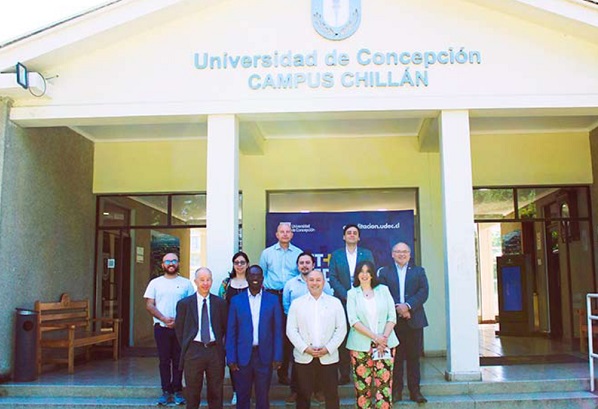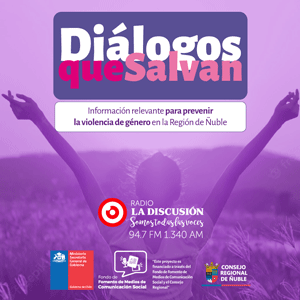The International Peer Reviewers Committee visits UdeC Campus Chillán to highlight the work of NENRE EfD-Chile – La Discusión

First it was in Concepción, then in Chillan. This is the visit of the International Committee of Peer Assessors, composed of Theodore Horbolic (University of Calgary, Canada), Phase Jesper (Lulea University, Sweden) and Edwin Muchabundwa (University of Cape Town, South Africa), who during this Wednesday held a meeting with the General Director of the Campus Dr. Pedro Rojas Garcia, Deputy Academic Director Dr. Daniel Sandoval Silva, Head of the Environmental Relations Unit Mr. Juan Castillo Monroy, and Director of the School of Management. and businessmen, d. Claudia Troncoso Andersen, members of Centro NENRE-EfD Chile; Director Dr. Marcela Jaime Torres, Deputy Director Dr. Mauricio Oyarzo Aguilar and Executive Coordinator Cristobal Vazquez, who in turn are affiliated with EAN.
The visit is part of a review of the work of the NENRE EfD-Chile Research Center (Environmental Economics and Natural Resources Research Center, of the International Network for Environment for Development (EfD), to assess future 5-year accreditation in various aspects that have an impact on public policies currently, given Formalization of NENRE EfD-Chile as a research group housed in the Vice Rectory for Research and Development (VRID) at the University of Concepción and directed by researchers from the School of Management and Business (EAN) of the Chillan Campus from UdeC.
During the meeting, they discussed the institutionalization of the center and how to embody its contribution to the University of Concepción and the activities that are in line with the interests of the Studies House.
The Commission was warmly welcomed by the Director General of the Chillan Campus, Dr. Pedro Rojas García, emphasizing the collaborative work generated by the NENRE EfD-Chile Research Center, housed in the House of Studies.
“Examples of collaboration such as those at the Center allow us to expand and strengthen those relationships with other institutions that may be part of the University’s Innovation District. Without a doubt, NENRE EfD-Chile’s capabilities are very relevant in responding to local needs,” said the Campus Director.
In the past three years, this group has gone through an expansion phase, with 15 researchers currently participating from six universities across the country, including the University of Concepción, University of Talca, Universidad Bio Bio, and Universidad La Frontera. . Pontifical Catholic University of Chile and Universidad del Desarullo.
The head of the international expert delegation – which has evaluated NENRE EfD-Chile five times – Dr Edwin Muchapondwa, highlighted the work the research center is constantly doing.
“The Education for Development Foundation has selected some specific topics that seek to make an impact on the global stage, and along these lines, we have identified some ‘champions’ for each of these topics, and given the records that the center has in Chile, we have chosen it in order to lead the development goal Sustainable Energy (SDG) Nº7, in the transition towards sustainable energy, said Dr Muchapundwa.
NENRE EfD-Chile has become an associated center of the global network of research centers of the Environment for Development (EfD) Initiative, of the University of Gothenburg (Sweden). The Fund’s objective is to contribute to the development of public policies that reduce poverty, promote good management of natural resources and the environment, and contribute to mitigating the effects of climate change in the Global South. These goals are achieved through the integration of research activities with scientific impact, training of human capital, and linkages with policy makers.
Similarly, EAN Director Dr Claudia Troncoso Andersen highlighted the work done by academics Marcela Jaime and Mauricio Oyarzo, who have held administrative positions at NENRE EfD-Chile since 2019 and 2021, respectively.
“The participation of our academics Marcela (Jaime) and Mauricio (Oyarzo) is relevant. The initiative gives us a context that allows us to promote the work they do, strengthening networks with other institutions; national and international. The impact of their research is greater and they offer solutions to environmental problems and the use of natural resources,” said Claudia Troncoso. “.
For her part, the Director of NENRE-EfD Chile and Academician from the Faculty of Management and Business, Dr. Marcela Jaime Torres, confirmed that for the first time in almost 10 years of the existence of the Research Center, the Research Center is now present. Accreditation assessment.
It’s the first time because our initial funds as a center came from the Millennium Initiative. Once this was done, we started receiving funding from this research network, and thus this evaluation was completed. In addition to speaking with the authorities of Consort Shilan, they were very satisfied with the visit. Dr. Jaime explained that they had a series of meetings with students and alumni of our programs, with policy makers in the areas in which we work, giving a description of the impact that is taking place in the network.
NENRE EfD-Chile has five research areas: Energy and Environmental Economics, Economics of Marine Resources, Climate Change and Ecosystem Services, Economics of Waste Management, and Economics of Mining Resources.
The EfD network includes 13 research centers in the Global South, including: Chile, China, Colombia, Central America, Ethiopia, Ghana, India, Kenya, Nigeria, South Africa, Tanzania, Uganda and Vietnam. This network also includes a number of partner institutions in the Global North, including the Environmental Economics Units of the University of Gothenburg (Sweden), Duke University (USA), Portland State University (USA), University of Toulouse (France), and Resources for The Future (USA) and the Mercator Institute for Research on Global Problems and Climate Change (Germany).

“Award-winning zombie scholar. Music practitioner. Food expert. Troublemaker.”










